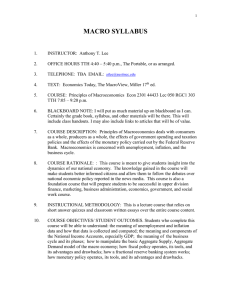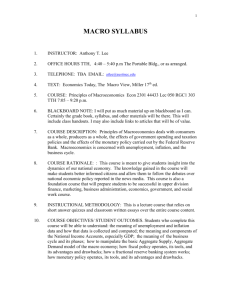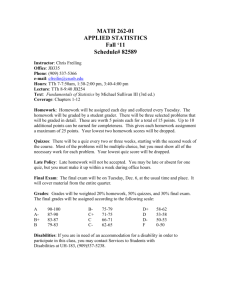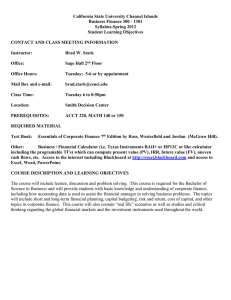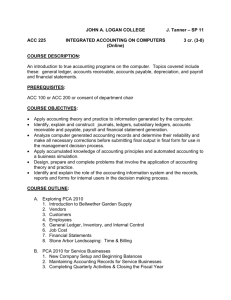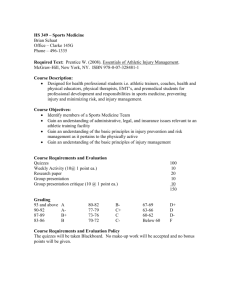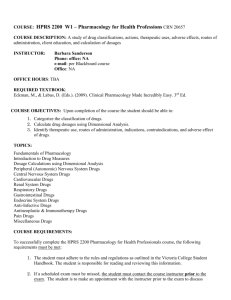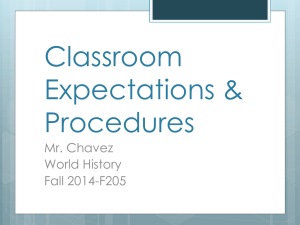ECON 2302 syllabus
advertisement
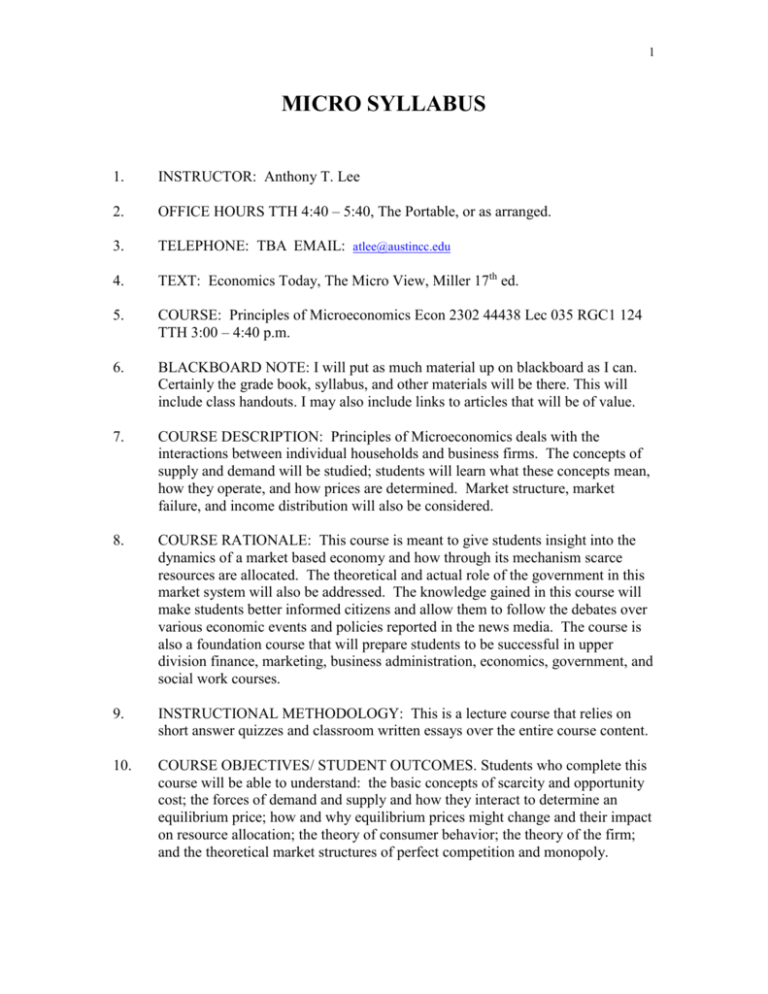
1 MICRO SYLLABUS 1. INSTRUCTOR: Anthony T. Lee 2. OFFICE HOURS TTH 4:40 – 5:40, The Portable, or as arranged. 3. TELEPHONE: TBA EMAIL: atlee@austincc.edu 4. TEXT: Economics Today, The Micro View, Miller 17th ed. 5. COURSE: Principles of Microeconomics Econ 2302 44438 Lec 035 RGC1 124 TTH 3:00 – 4:40 p.m. 6. BLACKBOARD NOTE: I will put as much material up on blackboard as I can. Certainly the grade book, syllabus, and other materials will be there. This will include class handouts. I may also include links to articles that will be of value. 7. COURSE DESCRIPTION: Principles of Microeconomics deals with the interactions between individual households and business firms. The concepts of supply and demand will be studied; students will learn what these concepts mean, how they operate, and how prices are determined. Market structure, market failure, and income distribution will also be considered. 8. COURSE RATIONALE: This course is meant to give students insight into the dynamics of a market based economy and how through its mechanism scarce resources are allocated. The theoretical and actual role of the government in this market system will also be addressed. The knowledge gained in this course will make students better informed citizens and allow them to follow the debates over various economic events and policies reported in the news media. The course is also a foundation course that will prepare students to be successful in upper division finance, marketing, business administration, economics, government, and social work courses. 9. INSTRUCTIONAL METHODOLOGY: This is a lecture course that relies on short answer quizzes and classroom written essays over the entire course content. 10. COURSE OBJECTIVES/ STUDENT OUTCOMES. Students who complete this course will be able to understand: the basic concepts of scarcity and opportunity cost; the forces of demand and supply and how they interact to determine an equilibrium price; how and why equilibrium prices might change and their impact on resource allocation; the theory of consumer behavior; the theory of the firm; and the theoretical market structures of perfect competition and monopoly. 2 11. POLICIES 1. ATTENDANCE: I have the OPTION to withdraw for missing 5 classes Withdrawals for lack of progress are the STUDENT’S responsibility. 2. REINSTATEMENT: case-by-case basis 3. INCOMPLETES: virtually never given 4. RETESTING: none, but you get an optional final 5. ACADEMIC FREEDOM: Students are encouraged to express other viewpoints, ideological or otherwise, that are relevant to the subject under discussion. Should the student disagree with the standard subject matter presented in this course, he or she is nevertheless required to know it. If necessary the student should preface his or her answer with the caution “According to the instructor …” 6. CONDUCT: inappropriate conduct will be penalized; such conduct includes swearing, eating in class, public demonstrations of affection, studying for another class, severe attitude problems, and anything else that prevents the class from going forward in an orderly manner. CHEATING IS SUBJECT TO DISMISSAL. 7. SCHOLASTIC DISHONESTY: Acts prohibited by the college for which discipline may be administered include scholastic dishonesty, including but limited to cheating on an exam or quiz, plagiarizing, and unauthorized collaboration with another in preparing outside work. Academic work is defined as, but not limited to tests, quizzes, whether taken electronically or on paper; projects, either individual or group; classroom presentations, and homework. 8. STUDENTS WITH DISABILITIES: Each ACC campus offers support services for students with documented physical or psychological disabilities. Students with disabilities must request reasonable accommodations through the Office for Students with Disabilities on the campus where they expect to take the majority of their classes. Students are encouraged to do this at least three weeks before the start of the semester. 3 12. GRADING 1. There are 400 total points. A = 370 pts. B = 335 pts. C = 270 pts. D = 230 pts. There is no curve. Percentages don’t count. If you have the points, you have the letter grade. 2. ATTENDANCE: There is no formal attendance requirement, but you have a quiz on almost every session. If you miss a quiz, you will need a written excuse in order to take it in my office. 3. QUIZZES: 20 essay/ short- answer quizzes, each worth 10 points. They will be given at the beginning of each class. Some days we will have two quizzes, on other days there will be no quizzes at all. The essays are designed to teach you how to discuss an economic point or problem. The short answer quizzes are designed to keep recent material in your memory. They are 12 minutes long and the topics will be announced in advance. The topics will be posted on Blackboard, and an announcement made. Should I fail to announce the topic, or we otherwise miss a quiz, you will be awarded 10 points automatically. 4. EXAMS: 2 exams, each worth 100 points. The exams will be in mixed format and contain both essays and short- answer questions You will see the actual exam sheet at the review session. I will select the actual questions at random on test day. You will see me do it. 5. OPTIONAL FINAL: The optional final covers the entire class material and counts 100 points. It stands in place of your lower EXAM score and cannot lower your score.
